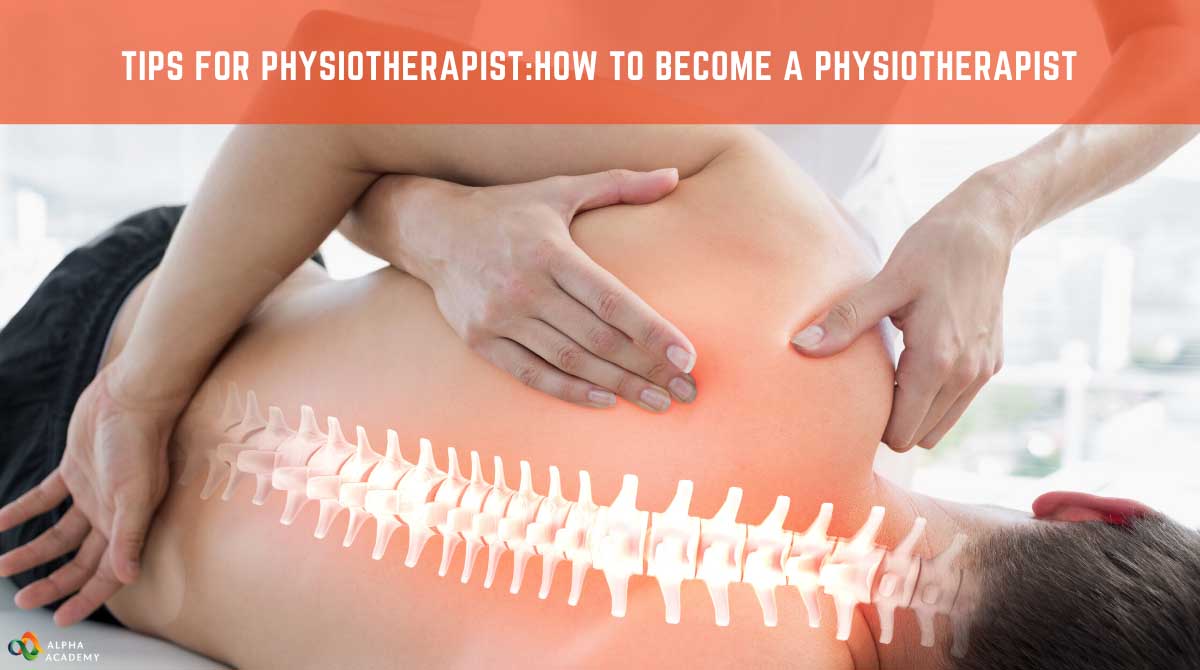
Physiotherapy is a treatment procedure where a patient’s mobility and function are restored through prevention, rehabilitation and different fitness activities. Physiotherapists help a patient to speed up their recovery. To kick start your career as a Physiotherapist, you might need a hands-on approach to promote helping others through movement, reducing pain and restoring function. A passion for helping out people through an understanding of muscle, bone, and ligament structure and making a commitment to patient health will be inspiring fuel to become a Physiotherapist.
To become a Physiotherapist, at the very beginning, you should know the responsibilities and daily tasks the job entails.
Table of Contents
What is a Physiotherapist?
The term “Physiotherapists” are known as “Physical therapists” in the US. Whereas “Physiotherapist” is known to the rest of the English-speaking countries. A physiotherapist helps to recover or improve the physical ability of patients who has disability due to illness or injury.
Daily Responsibilities of a Physiotherapist
- Assisting patients with spine and joint problems
- Treating physical disabilities or mental disorders
- Collaborating with professionals such as doctors and nurses
- Helping patients recovering from accidents and different injuries
-
Assisting older people with physical problems become more mobile
- Organising sessions on therapeutic physical exercise
- Providing advice about exercise and movement
- Having up-to-date knowledge on the latest advancements in the profession
- Massaging patients
- Using several techniques such as electrotherapy and ultrasound
- Statistical data collection
- Report writing
Physiotherapist Salaries and Job Outlook
Salaries for qualified physiotherapists range from £30,000 to £37,267. You could work as a physiotherapist at a client’s home, at a GP practice, fitness centre, for the NHS or at any private hospital.
Employers of physiotherapists
There are many options to choose as an employer. Employers of physiotherapists are as follows:
- Private clinics
- Hospitals
- Mental and physical disability services
- Professional sports clubs
- Nursing homes
- Community centres
- Charity organisations
- Special schools
How to become a Physiotherapist
There are some qualification, approaches and techniques required to become a Physiotherapist. If you can grab those qualification and techniques, there is a high chance to get a job for the position that holds high paying salary.
Required Qualifications to become a physiotherapist
If you want to be a full-time physiotherapist, required degrees typically take three years. There are also a few two year physiotherapy degrees appropriate for those who already have a degree in a relevant subject. Besides, you will be eligible to receive at least £5,000 a year concerning your studies while you are at university.
To get an opportunity to study a physiotherapy course, you typically need two or three A levels, including biological subjects and/or PE, along with five GSCEs, including Mathematics, English and at least one subject from science, or equivalent qualifications.
- A university course
- An apprenticeship
- Relevant work experience
Physiotherapy Approaches
Physiotherapy can include several treatments and preventative approaches, based on particular problems experienced by the patient. A patient’s first appointment is to assess what kind of approach must be taken.
There are three main approaches a physiotherapist may use.
Any of the following approaches will surely help you to get the professional skills for the position Physiotherapist. These are as follows:
Education and advice
Physiotherapy encompasses the body as a whole, instead of focusing on the different factors of a specific injury. Taking regular exercise and continuing a healthy weight for your height is an important portion of treatment. If patients have back pain, as a physiotherapist, you may advise on good posture, proper weight lifting or techniques for carrying things, avoiding uncomfortable twisting, overstretching or extended standing.
Movement and exercise
According to the NHS, Physiotherapists typically recommend the following movement and exercise to improve mobility and function of a patient. They offer advice and use special exercises that helps to increase physical activity and maintain sound health.
These are as follows:
Exercises that improve movement and strength of a specific body part – These type of exercise usually need to be frequently repeated for a long time.
Moving the whole body – Such as walking or swimming, which can help the patient to recover from an operation or injury that affects his or her mobility.
Hydrotherapy or aquatic therapy, (movements that are carried out in warm and shallow water) – Muscles and joints get relaxed and supported from the water.
The Physiotherapist uses manual therapy via their hands to handle and massage the body tissues to relieve pain, improve blood circulation throughout the body and promote relaxation.
Massage helps to improve quality of life, ideal for people with long-term ailments, through reducing levels of anxiety and refining quality sleep. This therapy can be used to treat particular problems, such as back pain, and is very beneficial for the bones, joints and muscles.
Techniques need to be trained as a physiotherapist
- Muscle stretching
- Joint mobilisation techniques
- Neurodynamics
- Joint manipulation
- Massage and soft tissue techniques
- Physiotherapy Instrument Mobilisation (PIM)
- Minimal Energy Techniques (METs)
Moreover, a Physiotherapist also use techniques such as Acupuncture, Transcutaneous Electrical Nerve Stimulation (TENS) as well as Ultrasound Scan.
Acupuncture: Needles are inserted into exact points of the body, to remove pain and endorse recovery. Learn more about Acupuncture.
Transcutaneous Electrical Nerve Stimulation (TENS): Generally, a battery-operated device is used to provide an electric current to the proposed affected portion, aiming to relieve pain. Learn more about TENS.
Ultrasound Scan: High-frequency sound is used to treat deep tissue injuries by stimulating blood circulation and cell activity aimed at reducing pain. Learn more about Ultrasound Scan.
Top 12 Skills you need as a physiotherapist
Become a skilled professional, its necessary to gain skills related to the industry or specific job position. Likewise, top 12 skills you need are listed below related to the Physiotherapy profession. So, check the following skills to work smoothly as well as efficiently –
- Physical awareness
- Communication
- Interpersonal skills
- Observational skills
- Science acumen
- Critical thinking
- Critical thinking skills
- Time management
- Organisation skills
- Work ethic
- Empathy
- Willingness to learn
Conclusion
You can show your expertise yourself as a Physiotherapist; there is a chance you could become a senior Physiotherapist in the NHS, or you can move into health service management. With experience, you could become self-employed and set up your own practice.
You could specialise in orthopaedics, sports therapy, occupational health, adult care or child health. Alongside, there are a lot of options to move into research or teaching. What are you waiting for?
Read More:
01. Why Cognitive Behavioural Therapy is The Future of Mental Health
02. Healthy Eating Tips and Guide
03. How to Become an Environmental Health Officer
Read more
- How Online Courses Can Enhance Your Career Prospects
- 6 Ways Online Faxing Can Enhance the Productivity of Your Small Business
- The Top Cyber Threats Looming Over Small Business Fortunes
- Benefits of Taking Online Courses for Your Education and Career Growth
- Writing Marketing Copy
- Youtube Monitization Guide – How to Monitize Youtube Channel
- How to Get Promoted in 2024 – 8 Best Practices
- Project Management : Guide to Become a Project Manager
- How to Develop a Business Plan
- How Online Courses Are Changing the Education Landscape














0 responses on "How To Become A Physiotherapist: The beginner's guide"